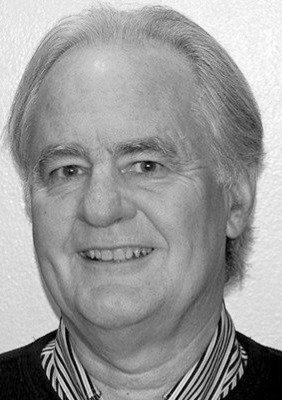Florida’s Gaming Compact, Seminole Tribe agreement allows sports betting on Oct. 15
Florida’s new Gaming Compact between Florida and the Seminole Tribe of Florida has been approved by the federal government – ushering in what should become the broadest gambling expansion in Florida in decades.
Notice of the approval, offered in letters from Bryan Newland, principal deputy assistant secretary of the U.S. Department of Interior for Indian Affairs, authorizes the massive new deal between the Seminoles and Florida, negotiated by Gov. Ron DeSantis’ administration and approved in a Special Session of the Legislature in May.
“The final approval of this historic gaming compact is a big deal for the State of Florida,” DeSantis said. “This mutually beneficial agreement will grow our economy, expand tourism and recreation and provide billions in new revenue to benefit Floridians. I again want to thank Seminole Tribe of Florida Chairman Marcellus Osceola Jr., Senate President Wilton Simpson and House Speaker Chris Sprowls for their part in getting this done for our great state.”
Sports gambling will be legalized both through casinos and online, run by the Seminole Tribe. The legal status of daily fantasy sports gaming will be confirmed. New casinos can be built and opened, both on and off tribal lands. Other casinos can be expanded or moved. Roulette and craps tables will be added.
The Seminole Tribe would assure and increase its payments to the state, starting with $2.5 billion over the first five years.
Some pari-mutuel establishments can close down their racing or jai alai operations and focus entirely on casino operations.
“After thorough review under IGRA, we have taken no action to approve or disapprove the Compact before August 5, 2021, the 45th day,” Newland wrote in letters dated Friday to DeSantis and to Osceola Jr. “As a result, the Compact is considered to have been approved by operation of law to the extent that it complies with IGRA and existing Federal law. The Compact will become effective upon the publication of noticed in the Federal Register.”
Osceola called it a “great day.”
“Today is a great day for the people of Florida, who will benefit not only from a $2.5 billion revenue-sharing guarantee over five years, but also from statewide sports betting and new casino games that will roll out this fall and mean more jobs for Floridians and more money invested in this state,” Osceola said in the release.
Simpson added, “I thank Governor DeSantis, House Speaker Chris Sprowls and the Seminole Tribe for their hard work and leadership to provide new opportunities for Florida’s legacy pari-mutuel industry, ensure oversight and accountability in gaming and secure billions of dollars in new revenue to invest in Florida’s future.”
The deal was opposed by No Casinos, which had urged the Bureau of Indian Affairs to reject the Compact.
“We are deeply disappointed that the Department of Interior took no action on the compact between the State of Florida and the Seminole Tribe of Florida,” No Casinos President John Sowinski said in a written statement.
His organization intends to sue to stop the Compact, charging that it is a violation of the constitutional amendment that Florida voters approved in 2018.
“While this inaction means that it is deemed approved by the Department of Interior, it does not change the fact that this compact violates multiple Federal laws as well as the Florida Constitution,” Sowinski said. “The 2018 constitutional mandate of 72% of Florida voters could not be clearer. Only Florida voters, not politicians in Tallahassee or Washington, have the power to expand gambling in Florida. This issue will have its day in both State and Federal Courts, where we are confident that this compact will be overturned.”
Publication of the notice in the Federal Register could happen as soon as Monday, though it could take longer. Approval is an all-or-nothing option. There will be no amendments or restrictions tacked on by the federal government.
The new agreement replaces a 2010 compact that gave the Tribe the “exclusive” right to operate banked card games, such as blackjack. But the Seminoles in 2019 stopped paying the state about $350 million annually because of a drawn-out dispute over “designated player” card games offered at pari-mutuels throughout Florida.
The Compact emerged this spring after years of conflict between the Seminole Tribe, Florida, and other gambling interests, and years of lobbying by a array of gambling interests and opponents of gambling expansion in Florida. The Legislature approved it. DeSantis and the Tribe signed it.
On June 21, the deal was sent to the U.S. Bureau of Indian Affairs, which had to determine if the deal aligns with the Indian Gaming Regulatory Act and other federal law.
The federal government, through Interior Secretary Deb Haaland, had 45 days to act. Depending on various interpretations of the law, the 45th day was Thursday. Since she did not take action, the compact gets approval by default, according to the Indian Gaming Regulatory Act, as cited by the Federal Register.
There are several lawsuits seeking to challenge the deal. There also are several statewide ballot initiatives in the works to change or challenge the Compact.
Scott Powers is an Orlando-based political journalist with 30-plus years of experience, mostly at newspapers such as the Orlando Sentinel and the Columbus Dispatch. He covers local, state and federal politics and space news across much of Central Florida. His career earned numerous journalism awards for stories ranging from the Space Shuttle Columbia disaster to presidential elections to misplaced nuclear waste. He and his wife Connie have three grown children. Besides them, he’s into mystery and suspense books and movies, rock, blues, basketball, baseball, writing unpublished novels and being amused. Email him at scott@floridapolitics.com.








